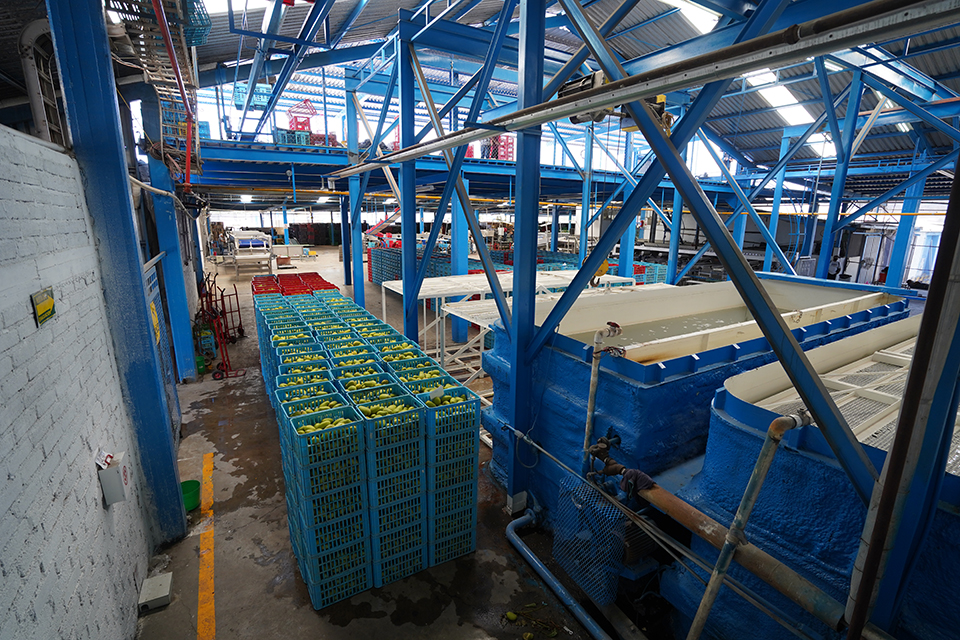USDA Inspectors Reduced
We “dodged” tariffs, but not cuts….
There’s always breaking news in produce—it’s just part of the gig. But lately, the whiplash feels extra brutal. One minute we’re dodging tariffs (pun 100% intended), the next we’re taking hits in unexpected places—like this weeks news of USDA inspector staffing cuts.
Produce people are wired for high-stakes hustle. We live in a constant state of fight or flight. But the current reality? It’s borderline unmanageable. Complexity is off the charts, demand is wild, and clear information is harder and harder to come by. Everything is bottlenecked—thanks to an algorithmically-driven, digital-first world trying to operate on an old-school, person-to-person produce system.
To put it plainly: this shit is nuts.
But here I am—doing my best to unravel the chaos so we can keep our focus where it belongs: on building the programs we’ve spent the last 10 years developing together through the Crespo Organic Mango program.
My advice this week? Stay focused. Trust what we’ve built. Lean into the strength of the brand, the Crespo family, and the deep trust we’ve cultivated through this direct-trade, orchard-to-table supply chain. Make sure you’re sharing the information with your teams—now more than ever, communication and clarity matter.
USDA Inspector Reduction
USDA inspectors are stationed on-site at Mexican mango packhouses as part of an APHIS (Animal and Plant Health Inspection Service) protocol to oversee and certify the mandatory hot water treatment process. This treatment is required for all mangoes exported to the U.S.—except those grown in fruit fly-free zones like Mochis and Baja—to prevent the introduction of fruit fly pests. Inspectors ensure that every mango lot meets strict time-and-temperature standards, validating the treatment’s effectiveness and maintaining U.S. phytosanitary requirements.
Starting next week, inspector hours will be reduced. We’re still waiting on the official numbers, but the current estimate is at least a 15% cut, possibly more. That means less fruit can be processed each week. Don’t forget—Sunday shifts were already eliminated last season, reducing output. This new reduction adds further strain and will likely keep markets tight. Even with more fruit available overall, less of it will get packed. Growers will be forced to redirect fruit that doesn’t make it through the system in time.
Bottom line? This is a bottleneck. One that slows us all down and blocks the full-throttle sales momentum we thought we were stepping into this season.
Demand/Supply
The good tariff news is quickly overshadowed by the reduction in USDA inspector hours amidst a large spike in demand. In the conventional world Peru has finally wrapped up its season and the mass retailers will start shifting into full-blown Mexican mango programs this month, putting even more pressure on overall Mexican mango supply. Demand is expected to stay high, and with limited packing capacity due to inspector cuts, prices will likely remain higher than most of us would prefer.
Crop
Generally speaking, everything I’ve said about the southern region crops still holds true—lots of mixed maturity on the trees and solid size availability across the board. Personally, I’m closely watching the ripening phases. As we move into the later part of the season, the fruit tends to ripen faster, which often translates into better flavor. Honestly, I don’t think we’ve seen great-tasting fruit yet this season, but that could shift soon.
I also believe the fruit is more sensitive to cold than usual right now—as I’ve explained before (with some science for those who still question my expertise).
Bottom line: we’ve got fruit in all sizes that should start tasting better, but it needs to move faster. Luckily, that should get easier as consumer demand picks up with the warming weather across the country.
Opportunities
We Are The Experts—that tagline isn’t just marketing fluff. The Crespo Organic direct-trade model stands out, especially in the current chaos. When you own your supply chain, the very challenges that slow others down can become opportunities for those who know how to move.
I firmly believe there’s a lot of business to be built in this moment—particularly in our organic domain. With everything going on, only a few of us still hold real power and clarity in this space. Producers across the board are struggling, and many have taken their eyes off the organic sector—its complexities, its higher margins, and the singular, more specialized sales. It’s easier to move conventional fruit right now, especially with prices and demand so high, but with focus, its perfect timing.
While others focus on simply maintaining their programs, we’ll double down and build through the chaos. Mango Wellness Month is here and our Cinco de Mayo campaign is coming fast, with Summer Mango Mania right behind it. the excitement and offerings are HIGH. Whatever challenges come our way—we’re ready. And we’ve got exciting new things to share with our supporters despite all the challenges.





